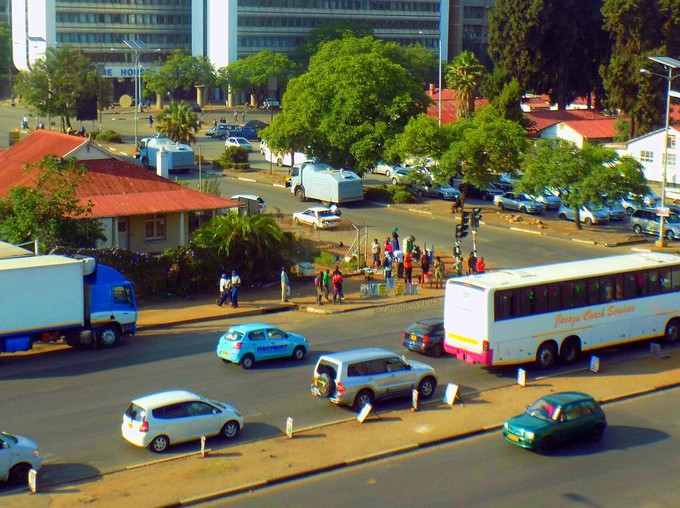Harare “mega” protest flops because of fear and feuds
Heavy police presence mutes protest aimed at Mugabe government
The protest was dubbed “Munhu Wese Mu Road” meaning “Every Citizen Out On the Road”.
During the week, organizers claimed it would be the largest protest the country has ever seen. A raft of Zimbabwe´s internet-based protest groups - #ThisFlag, #This Gown, The Zimbabwe National Vendors Union, the Zimbabwe National Students Union, and the main opposition party, Movement for Democratic Change (MDC) - claimed there would be “tens of thousands of protesters to send a clear message to the government”.
The issues
Stan Zvorwadza, leader of the Zimbabwe Vendors Union, who has been arrested many times, said the protest was against corruption, injustice and poverty.
MDC spokesperson Obert Gutu said, “We would thunderously and vociferously oppose the government´s bond notes.”
The Zimbabwe Reserve Bank’s plan to introduce bond notes is opposed by faith groups, informal traders, civil servants, legal practitioners and factory workers, who see it as an underhanded way to revive the defunct Zimbabwe dollar. The bank says bond notes will be backed by a US$200 million guarantee loan from Cairo based Afrimex bank, and will be kept to low units to prevent sparking runaway inflation.
Suspicion of the scheme has seen depositors sleeping outside banks to clean out their US dollar accounts, a return of the currency “black market” and looming fears of fuel shortages and empty supermarket shelves.
The protest
In the morning, police sealed off main roads, such as Africa Unity Square, and had water canons and mounted police on site.
There were several arrests. Tafadzwa Mahere, a lawyer and staunch critic of Zimbabwe´s new bond notes, and a supporter of the #Thisflag campaign, was also picked up at Africa Unity Square.
“Forty comrades were detained for praying peacefully in Africa Unity Square,” #Thisflag announced.
Taxi operators dropped passengers outside the city centre for fear of being caught up in the protest. “We fear our taxis may be stoned. We can’t take that risk,” said Justice Magoya, 24, a minibus driver.
“We are not seeking police clearance to protest. We are empowered by the constitution,” said Zvorwadza.
The first day of rain in weeks in Harare didn’t help the protesters either.
Rifts
Yet rifts had appeared among the protesters. #TajamukaSesijikile, lead by student leader Promise Mkwanazi, withdrew from the march earlier in the week.
A statement released on Wednesday said: “Tajamuka is concerned by the actions of other protest groups which have abandoned their core business of campaigning for electoral reforms to chance upon the bond notes anger.”
Harare-based political analyst Ashley Ndera said, “If divisions persist, I expect to see protest movements split into disparate units. The government may have the last laugh, especially if they license counter protests to disrupt the activists.”
Some sections of the public have grown weary of the protest marches.
A fruit vendor, who did not wish to be named, said: “Last time in September, the protesters burnt my stall and forcibly ate my stock. We sympathise with the cause, yes, but these endless protests cost me $20 in lost weekly profit. We need some peace to work.”
Support independent journalism
Donate using Payfast

Don't miss out on the latest news
We respect your privacy, and promise we won't spam you.
© 2016 GroundUp. 
This article is licensed under a Creative Commons Attribution-NoDerivatives 4.0 International License.
You may republish this article, so long as you credit the authors and GroundUp, and do not change the text. Please include a link back to the original article.

